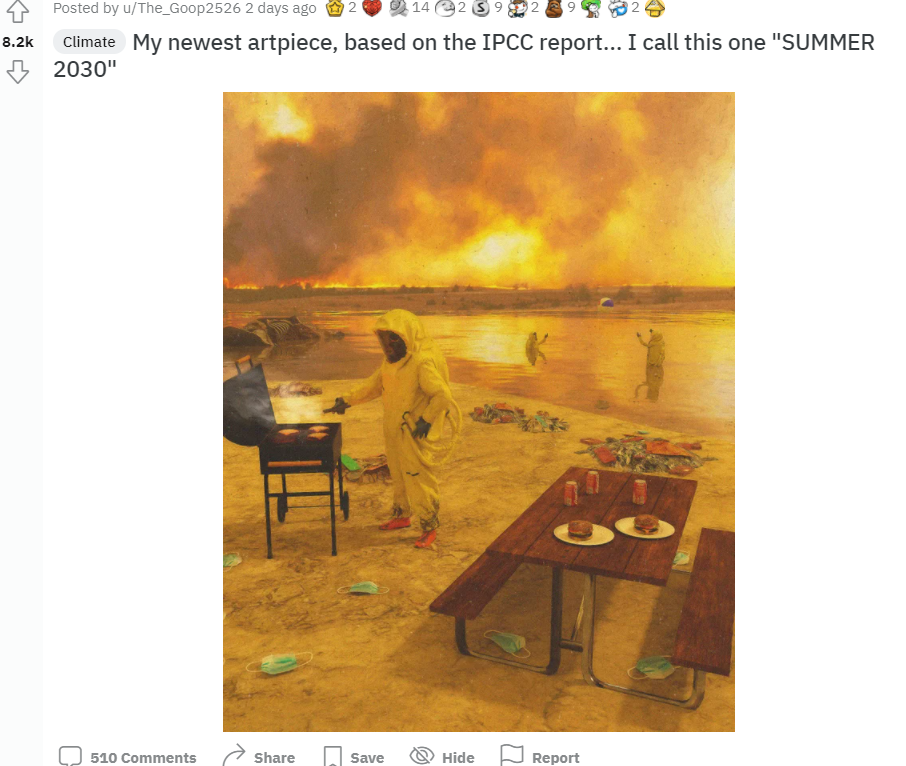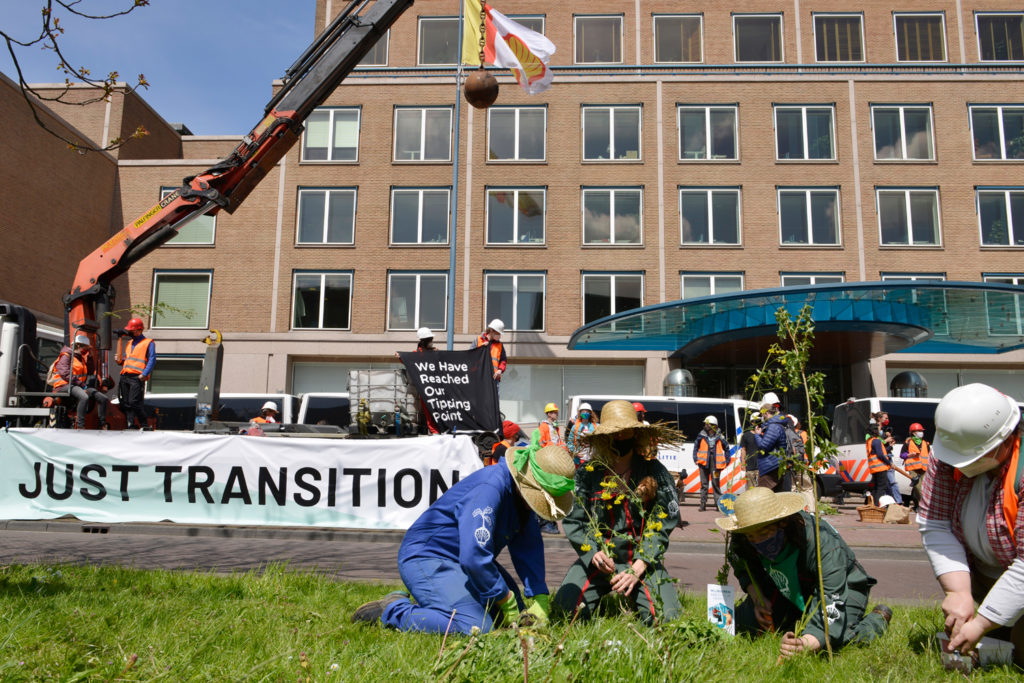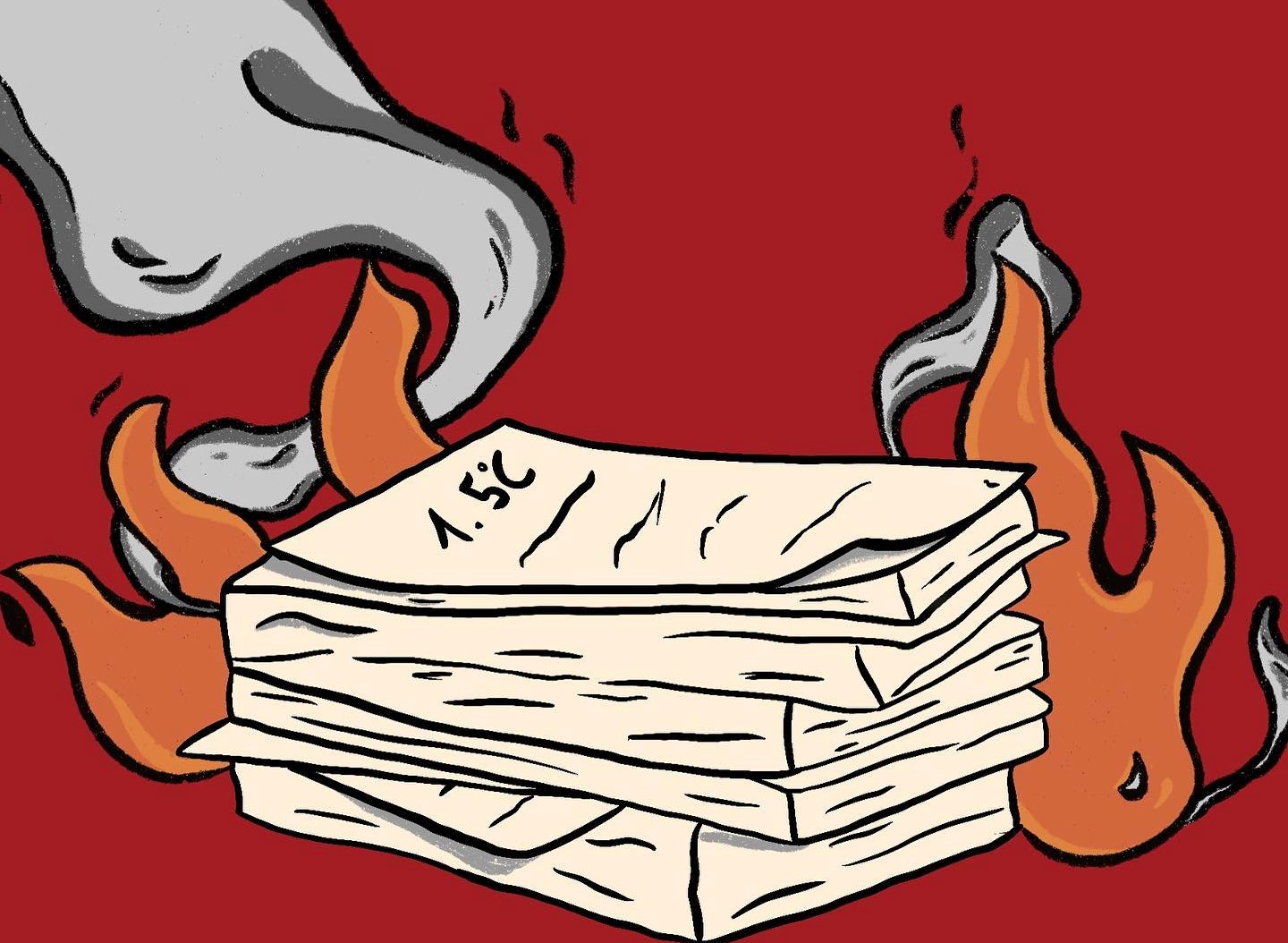Reflections on Climate Change and Climate Activism 2021
Three days ago the International Panel on the Prevention of Climate Change (IPCC) published its latest report titled “Climate Change 2021, the physical science basis”. The report has, deservedly, made headlines for showcasing the urgency of the climate crisis with greater certainty than ever before.
Atmospheric CO2 concentrations in 2019 were higher than at any time in the last two2 million years and global temperatures are rising rapidly, meaning that the 1.5°C threshold will be crossed around the early 2030s, about a decade earlier than previously assumed. This last finding in particular has sent many people into a spiral of what is called “climate doomism”. Somewhere between panic, irony and a shrug of the shoulders the latest IPCC report has inspired many jokes about the apocalypse on Twitter, Instagram and Reddit- a coping mechanism for those growing up in an age where (almost) everyone accepts that climate change is real, but no one really trusts their government to do much about it.

The picture the report paints is bleak, no question. But it is far from unexpected. And while climate doomism is a perfectly natural response to bad news, it makes for a hollow sort of climate activism. The question is whether we will move beyond this doomsday mood after we have processed the first “shock” of hearing the bad news.
We need to ask ourselves what we will do with the information the latest IPCC report has given us and what we will do with the studies yet to come. How will we use the science behind climate change to fight for climate justice? For Kaisa Kosonen from Greenpeace the answer is clear: “We’ll be taking this report with us to the courts.”
The IPCC report as evidence in a courtroom? This idea would have sounded a lot more absurd a couple of months ago before the landmark ruling in which a Dutch court found oil giant Shell responsible for contributing to climate change and sentenced them to drastically cut their emissions over the coming decades. Court cases against climate criminals are a real, viable possibility now and indeed many new cases are already pending in front of courts all across Europe.
The new IPCC report reaffirms more clearly than ever before that the climate crisis we are currently facing is human-made. From increases in global surface temperature to ocean acidification and more frequent, more intense extreme weather events, it links everything clearly to an increase in human-made greenhouse gas emissions over the past century and a half. The culprits for the climate crisis have names, faces and addresses, or slogans, logos and offshore bank accounts.
Court cases will definitely play an important role in the upcoming decades which we have left to tackle the climate crisis. But as Shell’s recent decision to appeal their sentence in the Hague shows, those responsible will not make it easy for us to hold them accountable. In seeking justice, we might need to allow ourselves to dream bigger and a teeny bit more radical.
“It is easier to imagine the end of the world than to imagine the end of capitalism.” This quote has become a popular one to cite when talking about the climate crisis. But it might as well be a self-fulfilling prophecy. Because it is not just those who believe in capitalism as a breeding ground for innovation and efficiency who are unable, or unwilling, to imagine its demise.
Even among the most adamant advocates for radical systematic change, the end of capitalism or even just the dismantling of a single fossil fuel company is usually thought of as desirable, but not feasible, in short wishful thinking. Complete ecological collapse on the other hand is a perspective we have become so accustomed to that many of us have silently accepted it. With every new picture of retreating glaciers, starving polar bears and dried up lakes the climate catastrophe is brought closer to us, while at the same time alienating us from the idea of an alternative world.
The most recent IPCC report makes it even more apparent that we have to act now if we want to prevent the climate crisis from escalating into a full-blown disaster. Much damage has already been done, but the worst can still be averted. Rises in sea-level or the thawing of permafrost are irreversible, but the developments of the coming decades will determine whether temperatures will stabilize again or rise further for decades to come. Whether much of the world’s population will have access to food and water and how many million will lose their homes to rising sea levels is still undecided. What is clear is that any action to prevent the worst impacts of climate change will have to be fast and far-reaching.
If the end of our exploitative, ecologically damaging economic system remains unimaginable, we might as well await the apocalypse in quiet resignation. But if we are bold enough to imagine an alternative, then maybe our activism can gain new momentum.

How do we want the future of our planet and of our communities to look like? By the time global temperatures have hit the 1.5°C mark, what do we want our justice system to look like? Who will be involved in making new climate policy and who will manage renewable energy production and distribution? Where will our food come from and who will fund our universities and museums to educate younger generations on climate change and train the next generation of scientists?
These questions might seem miniscule compared to the ever-looming question of “will I live to see the end?”, but they will need to be addressed.
Panic is never productive once it turns into resignation in the face of overwhelming doom and the IPCC report gives little reason to be optimistic. But what we need is not optimism about the potential impacts of climate change – we need hope for a climate movement that turns anger and fear into action; one that is less defined by desperation in the face of ecological collapse and more by a vision for a better future; one that doesn’t just want to survive climate change but that creates a more just world in the process.
As #ShellMustFall, we believe that we can’t talk about the climate crisis without naming the elephant in the room: large fossil fuel conglomerates like Shell, which are principally responsible for this crisis. To us, the end of capitalism must entail the dismantling of large fossil fuel giants such as Shell — we need a future beyond Shell.

